Covid world: US loads up on Pfizer jabs to beat deadly variants
US President Joe Biden is buying an extra 200 million doses of Pfizer to help combat deadly Covid variants, as Moderna was given a major boost.
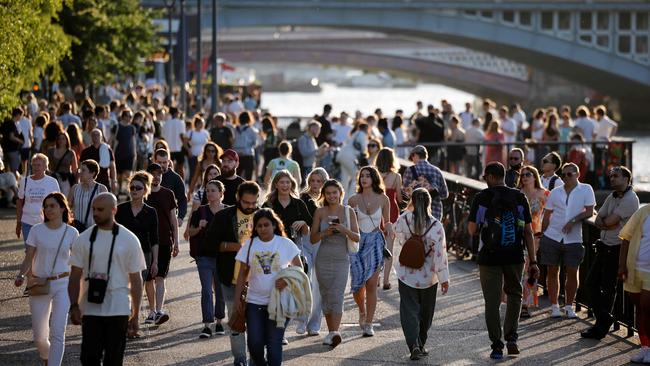
Coronavirus
Don't miss out on the headlines from Coronavirus. Followed categories will be added to My News.
The United States will purchase 200 million more Covid-19 vaccine doses from Pfizer and BioNTech and has an option to buy additional doses to address virus variants, the companies announced.
The additional doses are expected to be delivered from this coming October to April 2022, bringing the total number purchased overall to more than 500 million.
The United States also has an option to “acquire an updated version of the vaccine to address potential variants, as well as new formulations of the vaccine, if available and authorised,” the companies said in a joint statement.
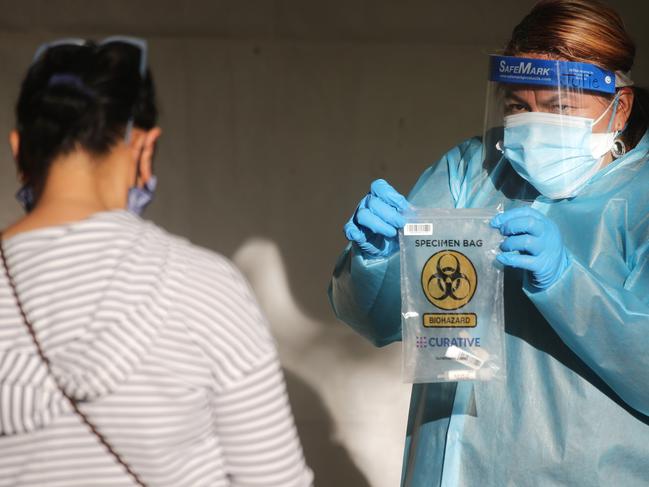
The Pfizer-BioNTech alliance said earlier this month that they would seek regulatory authorisation for a third dose of their Covid-19 vaccine.
However, US health officials reacted cautiously to the prospect of additional doses, saying “Americans who have been fully vaccinated do not need a booster shot at this time,” according to a July 8 statement from the Food and Drug Administration and the Centres for Disease Control and Prevention.
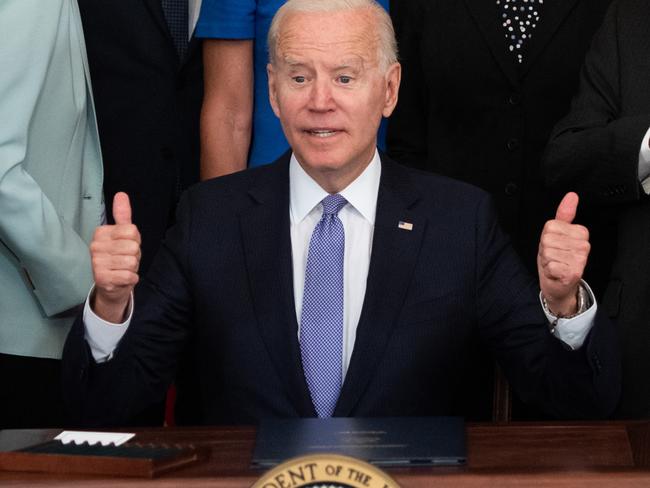
“We are prepared for booster doses if and when the science demonstrates that they are needed,” the agencies said.
US authorities have warned that Covid-19 is becoming a “pandemic of the unvaccinated” as the Delta variant leads to the latest surge in US infections and as the virus continued to wreak havoc in other countries.
EU APPROVES MODERNA FOR KIDS
The European medicines watchdog has approved the use of Moderna’s coronavirus vaccine for children aged 12 to 17, making it the second jab for adolescents for use on the continent.
“The use of the Spikevax vaccine in children from 12 to 17 years of age will be the same as in people aged 18 and above,” the European Medicines Agency (EMA) said, using the vaccine’s brand name.
The vaccine will be given in two injections, each four weeks apart. The decision by the Amsterdam-based agency follows the approval of the first vaccine for European youngsters, by Pfizer/BioNTech in May.
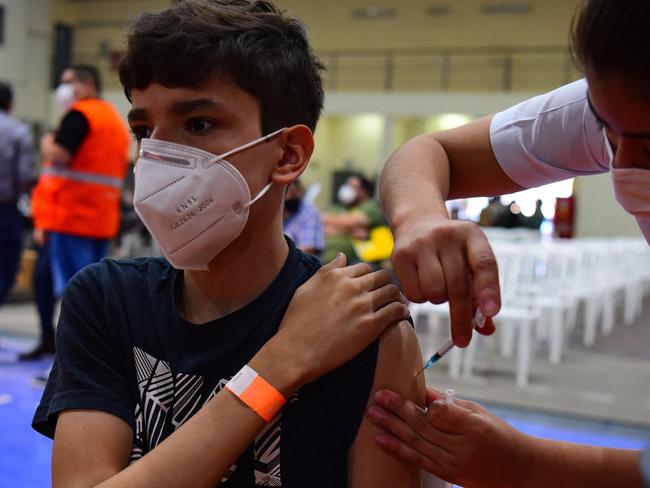
The effects of the jab have been studied among 3,732 children aged 12 to 17 years, the EMA said.
“The study showed that Spikevax produced a comparable antibody response in 12- to 17-year-olds to that seen in young adults aged 18 to 25 years,” it said.
It comes as Australian health authorities said the Pfizer vaccine could be used in children 12 and up.
The Moderna jab employs the same mRNA technology as Pfizer/BioNTech, using genetic material to deliver instructions to human cells to create coronavirus spike proteins.
It thereby trains an immune response without exposing the host to a real infection.
The EMA said there were common side effects in children similar to those in adults.
This included pain and swelling at the injection site, tiredness, headache, muscle and joint pain, enlarged lymph nodes, chills, nausea, vomiting and fever.
“These effects are usually mild or moderate and improve within a few days from the vaccination,” the EMA said.
‘BENEFITS OUTWEIGH RISKS’
But it noted that due to the “limited number of children and adolescents included in the study, the trial could not have detected new uncommon side effects”.
Nor could it estimate the risk of known side effects such as myocarditis (inflammation of the heart muscle) and pericarditis (inflammation of the membrane around the heart).
“However, the overall safety profile of Spikevax determined in adults was confirmed in the adolescent study,” it said.
“The benefits of Spikevax in children aged 12 to 17 outweigh the risks, in particular in those with conditions that increase the risk of severe Covid-19.”
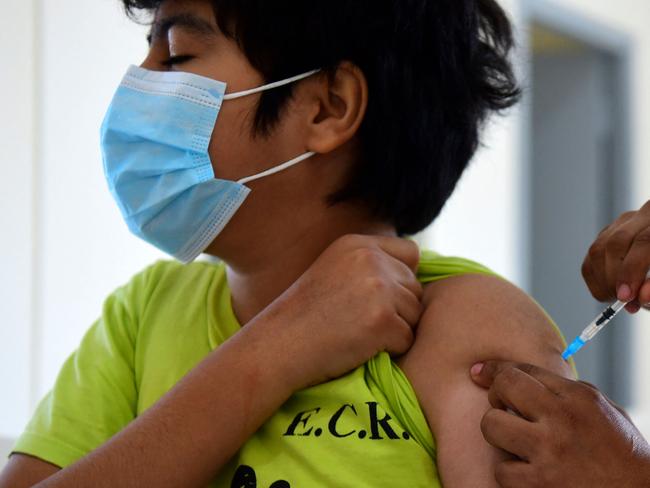
The EU last week said 200 million Europeans have been fully vaccinated, more than half of the adult population, but still short of a 70 per cent target it had set for the northern hemisphere summer.
The EU’s rollout began more slowly than in Britain and the United States — largely because of supply shortages — and drew heavy criticism during the first months of the year.
The European Commission, which co-ordinated vaccine orders for the 27 member states, was the subject of many of the complaints.
European Commission chief Ursula von der Leyen had announced on July 10 that the EU had enough doses to vaccinate “at least 70 per cent of the adult population this month”.
According to official data, just over 440 million doses have been administered in the European Union. That is 98.4 doses per 100 inhabitants, while the United States are at 102.4 per 100 inhabitants.
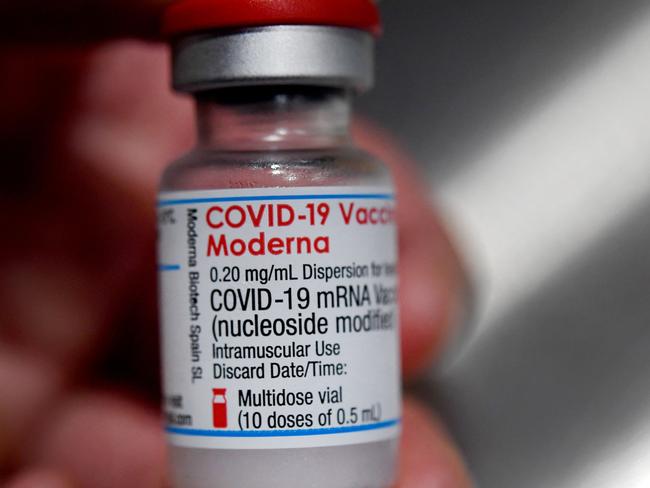
CHINA BLASTS COVID ‘ORIGIN’ RUMOUR
China is rejecting the World Health Organisation’s calls for transparency and co-operation as the agency plans to continue its probe into the origins of the pandemic.
Instead, China is demanding that the WHO dismiss the lab leak theory as a “rumour”.
Zeng Yixin, vice minister of China’s National Health Commission, said he was “rather taken aback” by the investigation, arguing that the idea that Covid-19 may have escaped from a Wuhan lab ran counter to common sense and science, New York Post reports.
“It is impossible for us to accept such an origin-tracing plan,” the senior Chinese health official said.
Zeng’s comments came after the WHO last week presented its proposal for a second phase of its probe into the origins of the Covid-19 pandemic, which has killed more than 4 million people worldwide.
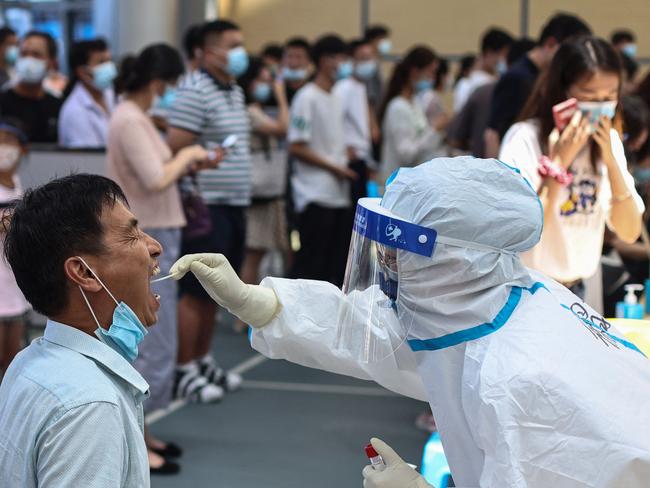
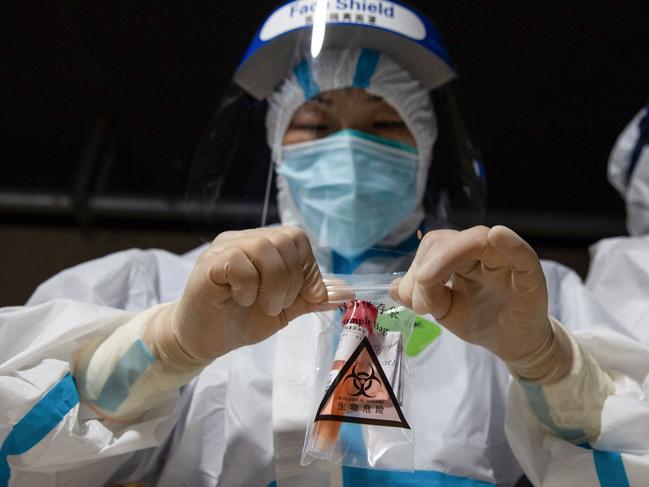
In response, White House press secretary Jen Psaki said the US was “deeply disappointed” in China’s remarks. “We’re deeply disappointed. Their position is irresponsible and frankly dangerous,” Psaki said at her daily press briefing.
COVID ‘RISING EXPONENTIALLY’
More than half of all European adults are now fully vaccinated against Covid, as several countries across Europe and Asia battle new outbreaks fuelled by the Delta variant.
German Chancellor Angela Merkel said cases in her country were rising “exponentially”, while in Japan the delayed Olympic Games were set to open with almost no spectators and strict Covid rules in place.
The spotlight once again turned to the virus’ origins after the World Health Organisation called for an audit of the Chinese lab at the heart of speculations about where the virus first emerged, sparking a fiery response from Beijing.
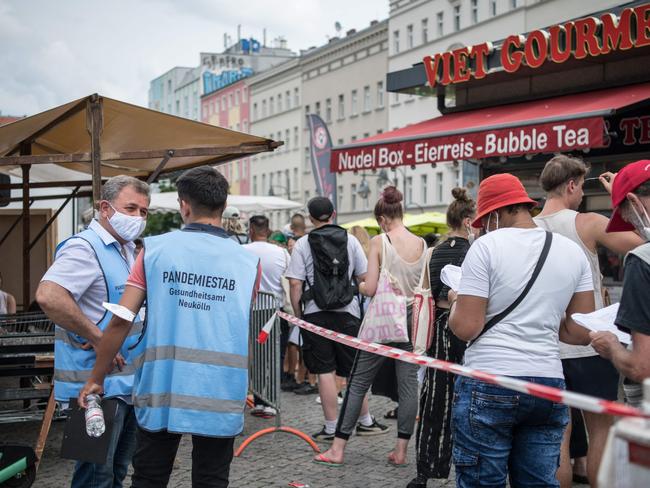
More than four million people have now died from Covid since it first emerged in December 2019. Delta is fuelling a new wave of infections, prompting governments to reimpose antivirus measures.
The EU said 200 million Europeans are fully vaccinated, more than half of the adult population but still short of a 70 per cent target set for the summer.
The new data came as Mrs Merkel urged more Germans to get vaccinated, sounding the alarm over a fresh spike in cases in Germany.
“The infection figures are rising again and with a clear and worrying dynamic,” Mrs Merkel told a press conference in Berlin.
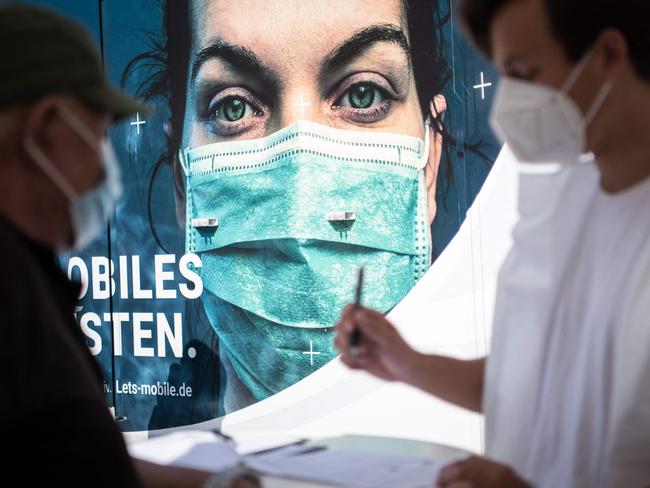
“We are seeing exponential growth,” she said, adding that “every vaccination … is a small step towards a return to normality”.
Germany on Thursday recorded 1890 new infections over the past 24 hours and an incidence rate of 12.2 new cases per 100,000 people over the past seven days — more than double rates in early July.
“With a rising incidence rate, it could be that we need to introduce additional measures,” she said.
DOMINANT DELTA
Germany joins a number of European nations that have seen cases climb in recent weeks.
The new outbreaks have been largely fuelled by the Delta variant, first detected in India, which is expected to become the dominant strain of the virus over the coming months, the World Health Organisation (WHO) said.
It has now been recorded in 124 territories — 13 more than last week — and already accounts for more than three-quarters of sequenced specimens in many major countries.
France this week rolled out new rules requiring a so-called health pass for all events or places with more than 50 people before being extended to restaurants, cafes and shopping centres in August.
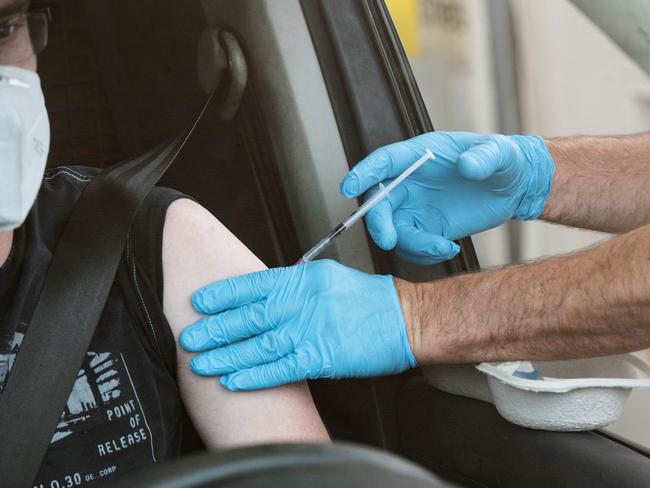
People need to show proof of vaccination or a negative test to gain access, after the country reported a new surge — more 21,000 new cases on Wednesday, the highest level since early May.
Cases are also soaring in the UK, where most restrictions were lifted this week, and on Thursday local time, British supermarkets warned of possible food shortages because staff were being forced to self-isolate.
Countries in Asia are seeing some of their worst outbreaks to date, with Indonesia becoming a new global hotspot as Vietnam and Thailand face new antivirus rules.
PSYCHOLOGICAL STRAIN
With no clear end to the pandemic in sight, attention turned once again to the international probe origins of the virus.
The WHO said last week that a second stage of the probe should include audits of Chinese labs, as the US increases pressure for an investigation into a biotech lab in Wuhan.
Long dismissed as a right-wing conspiracy theory and vehemently rejected by Beijing, the idea that Covid-19 may have emerged from a lab leak has been gaining momentum.
But China’s vice health minister Zeng Yixin told reporters Thursday that he was “extremely surprised” by the WHO plan, which he said showed “disrespect for common sense and arrogance towards science”.
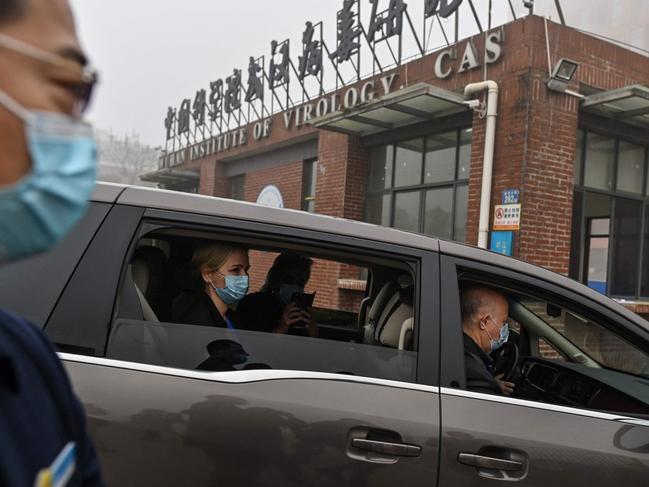
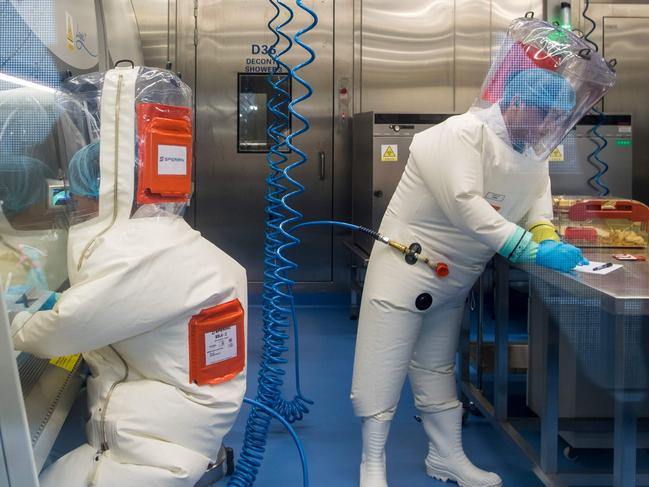
Elsewhere, the agency focused on another aspect of the pandemic: a mounting mental health crisis brought on by anxieties around catching the virus, the psychological impact of lockdowns and isolation, along with stresses linked to unemployment and financial worries.
“Everyone is affected in one way or another,” the WHO said in a statement at a meeting in Athens Thursday.
“The mental health impacts of the pandemic will be long term and far-reaching.”
– with AFP
Originally published as Covid world: US loads up on Pfizer jabs to beat deadly variants
Read related topics:COVID-19 Vaccine




